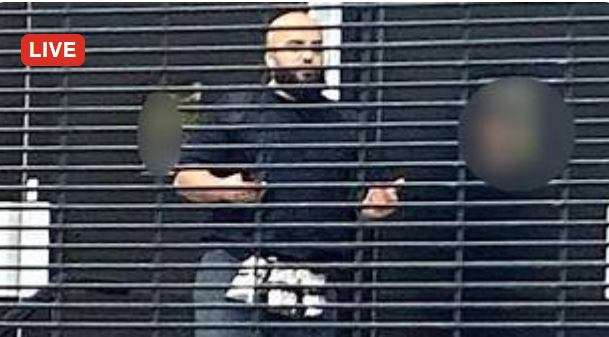“I Don’t Want to Die”: The Scandal of How We Fail People with Learning Disabilities
- presenterscarlettred

- Oct 2, 2025
- 3 min read
As a parent of an adult with learning disabilities, I know the fight all too well. This is not a one-off tragedy but a systemic failure we must confront.
Adrian Poulton’s last words were chilling in their simplicity: “I don’t want to die.”
He was a 56-year-old man with Down’s syndrome who entered hospital with a broken hip. Nine days later, he was gone. Not because of the hip, but because he was starved. For more than a week he was left without food or nutrition. Nine Days accidentally marked "Nil by Mouth". A hospital investigation admitted that this lack of feeding was a contributing factor in his death.
This was not an act of fate. It was avoidable. It was neglect.
And it was not an isolated case.
The Bigger Picture of Failure
Adrian’s story highlights a truth many of us already know: people with learning disabilities are routinely failed by our healthcare system.
The statistics are grim. People with learning disabilities die, on average, twenty years younger than the general population. A shocking proportion of those deaths are classed as “avoidable.”
Staffing levels tell their own story: the number of learning disability nurses has fallen by 43 percent since 2009. Meanwhile, training programmes that are meant to protect vulnerable patients, such as the Oliver McGowan mandatory training on learning disability and autism, remain patchy, with many areas failing to meet even the minimum targets.
Families are left to fight constant battles with hospitals and services that are supposed to care. As one parent said: it’s a “battle, battle, battle, battle.” Adrian’s case is a tragic example of what happens when families’ voices, and the voices of disabled people themselves, are ignored.
My Own Fight
As the parent of an adult child with learning disabilities, I recognised myself in this story.
Every hospital visit, every GP appointment, and every interaction with social care turns into a fight. A fight to be heard. A fight to ensure my child isn’t dismissed. A fight to make sure their needs are seen as equal to anyone else’s.
I have been there in those moments when staff assume that because someone has a learning disability, their pain is “less real,” their needs are “less urgent,” their life is somehow “less valuable.” I have seen how fast doors close unless you keep pushing them open.
And I have lived with the fear that one day, despite all my vigilance, the system will fail us too.
What Must Change
Adrian’s death cannot be brushed aside as an “unfortunate error.” It represents systemic rot, and it demands systemic reform.
Steps we must take to avoid this from happening to anyone again
• Independent advocacy: Every hospitalised patient with a learning disability should have the right to an independent advocate who checks daily on their care.
• Specialist staff: We need urgent investment in learning disability nurses and specialists across the NHS.
• Mandatory training that works: The Oliver McGowan training must not just exist on paper; it must be delivered consistently, measured, and enforced.
• Basic safety protocols: No patient should go days without nutrition. Daily nutritional checks must be mandatory, with families informed of every decision.
• Accountability and transparency: Deaths like Adrian’s must trigger automatic external investigations, with families given full truth, not excuses.
These are not even radical demands. They are the bare minimum any decent society should expect.
No More Excuses
Adrian’s death is not simply about one man, one hospital, one mistake. It is about a system that quietly accepts the early deaths of people with learning disabilities as if they were inevitable.
They are not inevitable. They are the result of choices, underfunding, lack of training, and a culture that still treats disabled lives as secondary.
We must change that culture. We must stop forcing families into endless battles. We must listen when people say they are hungry, in pain, or afraid.
Because no one should ever spend their final days begging not to die.










Comments